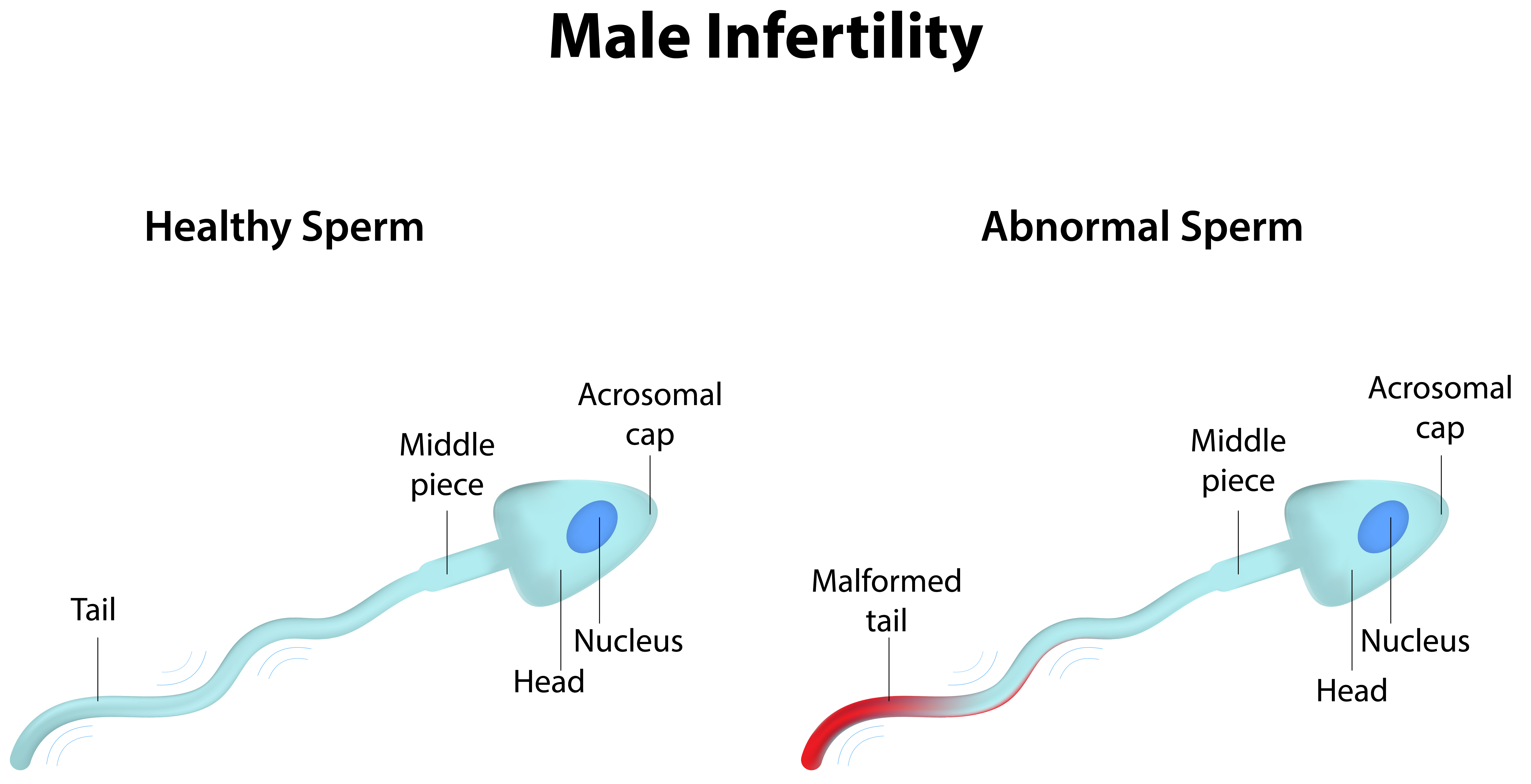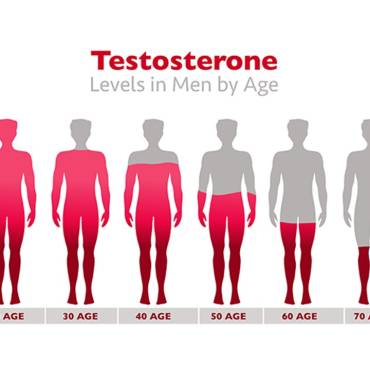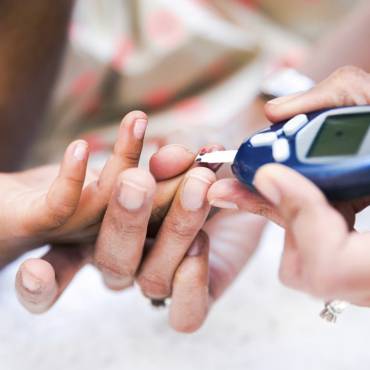Infertility is a couple’s inability to become pregnant after a year of regular and unprotected sex. According to reports, an estimated 15% of North America and Europe couples are grappling with infertility. What is male infertility? Many couples that have long hoped to become parents often struggle to reproduce. Infertility is the main reason they have been unable to have children.
Studies have shown that male infertility issues cause one-third of infertility cases in couples. Infertility in men is defined as the inability of a man to get a fertile female pregnant after having frequent and unprotected intercourse for a year.
All men may be forced to assess their ability to reproduce at some point. But today, even younger men find themselves grappling with these questions. The stress of work pressure and maintaining a certain lifestyle is taking its toll on men and causing several health issues. Infertility is one of them. There are various other reasons for infertility in men, which includes low testosterone and obesity, to name a few.

What causes male infertility?
Low sperm count is considered one of the foremost causes of male infertility. However, low sperm count only affects 1% of all men and 10 to 15% of infertile men. These are the various other reasons for male infertility:
1. Physical reasons:
-
- Ageing: As men age, achieving pleasure in sexual intercourse becomes difficult and, at times, painful, which is why age can cause infertility.
- Obesity: Overweight men can have poor sperm quality compared to healthy men. Being overweight or obese can also cause hormonal changes that reduce fertility and make men less interested in sex. Men who are overweight are also more likely to have problems getting an erection.
- Varicocele is an abnormal enlargement of the spermatic veins that carry blood from the testicles to the abdomen. This abnormal enlargement produces a one-way valve in the veins that causes the backflow of blood from the abdomen to the scrotum, because of which an unreceptive environment for the sperm is created. This reduces the sperm count, disturbs sperm morphology, and finally leads to infertility.
2. Psychological problems:
Stress can cause infertility. Many men take on a lot of work and other responsibilities to fulfil dreams for their families, which may create undue pressure on them and affect their sexual performance.
3. Hormonal problems:
Low levels of testosterone, a hormone produced by the testicles, can also be a cause of infertility problems.
4. Injury or work environment:
Testicular injury can cause male infertility problems. Also, exposure to high temperatures, hazardous chemicals, or radiation may impact testosterone production ability.
Things you should be aware of
-
- Female infertility is easier to understand than male infertility issues because most female infertility problems are known. Infertility in men is tough to acknowledge at the early stages, leading to delays in fertility treatment for men.
- Stress is a rising factor for infertility in India. Stress due to long working hours with unpredictable timings are major factors for stress-related infertility. However, stress-related infertility is completely irreversible; your chances of conceiving can increase by adopting stress management techniques.
- Sometimes nutritional deficiencies could contribute to infertility issues. One should monitor nutritional deficiencies and maintain a healthy body by eating a balanced diet. You should know the best fertility food and take all the essential nutrients in moderation to improve fertility after consulting your physician. Getting a fertility diet regularly is itself a natural fertility treatment for men.
- Maintaining a healthy lifestyle is necessary for fertility. According to various research studies, most infertility cases in men and women occur due to poor lifestyles. So, it is necessary to adopt healthy lifestyle habits and leave out bad habits such as smoking, alcohol consumption, obesity, and not indulging in any physical activity.
Diagnosing infertility in men
Treatment of infertility is a significant challenge. For male infertility treatment, it is important first to diagnose its cause. Here are various methods of diagnosis that a healthcare professional can use to determine the exact condition:
-
- Physical examination and medical history: This is the first step in determining fertility status. The physician may examine your genitals and question you about inherited conditions, health problems, injuries, surgeries, and illnesses affecting fertility.
- Semen analysis: A semen analysis test is also done to determine infertility in men. Ejaculated semen is collected in a special container, and the sperm is examined for abnormalities in shape (morphology) and movement (motility). If the doctor finds your sperm quality normal, they may recommend that your partner be tested before you undergo any more infertility tests.
- Testicular biopsy: Your doctor will perform a testicular biopsy using a needle. The test results can tell if sperm production is normal or not.
Treatment for male infertility
There are numerous ways in which infertility in men can be treated. These include:
-
- Eat healthy- Certain foods, including fish, fruits, veggies, and walnuts, may improve sperm health. The fertility diet for men can help boost fertility by increasing testosterone production and improving sperm count/quality.
- Watch your weight – Shedding the pounds will help improve sperm count and movement.
- Treating infection – Various antibiotics are available, but these medications do not always re-establish fertility.
- Yoga –To treat infertility in men, doctors recommend yoga as it provides mental relaxation.
- Meditations – There is a wide range of infertility drugs for males. These fertility drugs for men help restore fertility by increasing the amount of testosterone and decreasing the amount of estrogen in the body.
- The frequency of intercourse – Couples are advised to increase the frequency of sexual intercourse as it may improve their chances of conceiving.
- Surgery – Procedures that unblock tubes damaged due to infections, tract blockages, and varicocele can also reverse infertility in men.
- In-Vitro Fertilization – IVF is an effective but expensive treatment for conceiving an egg that is fertilized by sperm outside a woman’s body. If men want this treatment to work effectively, they must quit smoking.
Conclusion
While infertility is a major setback for couples, advancements in medical science offer renewed hope, you can schedule an appointment with a fertility specialist to tackle your infertility problem head-on. A fertility medication for men can change a man’s hormones in many ways. These medications for male infertility can help a man regain fertility by raising testosterone levels and decreasing estrogen.
Also Read: The Importance of Regular Health Checkups for Men: What to Expect and Why It Matters?



